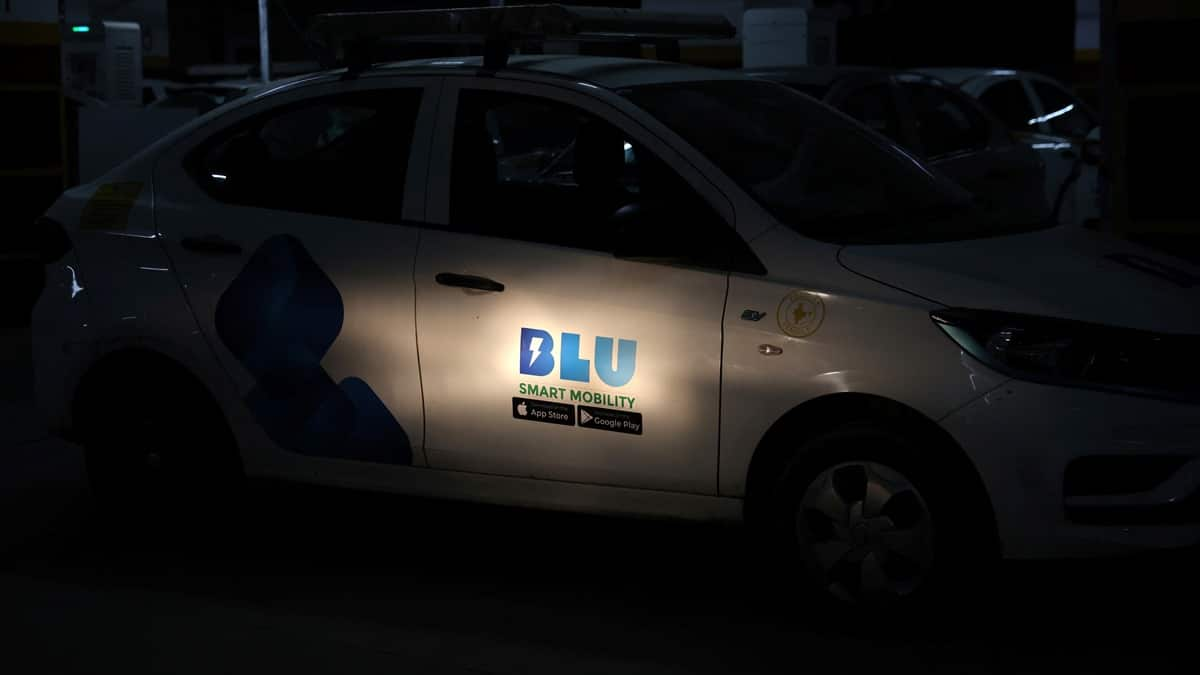Blusmart optimistic of scaling up EV leasing scheme; analysts express doubts
In a bid to expand its fleet size and enter new cities, Gurugram-based all-electric taxi startup BluSmart has turned to individuals for investments through its Assure programme.
As a part of the programme, individuals can buy an EV and lease it out to BluSmart for a period of four years in exchange for fixed monthly rentals, after accounting for EMI payouts. The company noted that monthly returns could range anywhere between Rs 28,000 – 33,000 per month per sedan car and potentially higher for SUVs.
“It is less likely for an individual to spend money for purchasing a new electric car costing about Rs 13 lakh, and then hand it over to a cab aggregator just for some additional monthly income. How attractive the investment is largely depends on whether the promised 14%+ rate of return under the Assure programme is after accounting for the EMI payout or not,” said Shyamasis Das, fellow and lead – electric mobility at Centre for Social and Economic Progress.
According to him, when the investment period of four years is over, it would be difficult to ascertain the battery health, the heart of an EV, which for sure would have gone through thousands of duty-cycles by that time. Currently, there is no reliable template to accurately analyse the vehicle telematics data for determining the battery degradation, Das said.
Unlike ICE vehicles, the secondary market for EVs are much smaller and less matured, where getting a competitive re-sale price would be difficult. “The programme would rather have more takers if the company allowed existing EV owners to lease out the cars that they own. In this case, the risks related to road-worthiness of the EVs would have been on BluSmart,” he added.
Though Jaggi talked about the huge interest the programme has generated in a short period of time, he did not disclose the number of participants the company has on-boarded so far.
“Assure by BluSmart is a great opportunity for investors to deploy assets on India’s largest born electric, integrated and full stack EV ride hailing service,” Bhammer said highlighting how it’s an attractive investment option.
Even with government subsidy, the on-road price of a Tata Tigor EV, which forms a large part of BluSmart’s fleet, is Rs 13.4 lakh. Earlier this year, the company raised $42 million in a mix of debt and equity to expand its fleet capacity in Delhi-NCR and Bengaluru and also to launch in new markets. Unlike cab aggregators such as Ola and Uber, BluSmart leases the vehicles from OEMs and hires drivers on its payroll to run its fleet.
The latest fundraise, where the founders pitched about half of the capital raised, is a fraction of the $250 million the company had been in talks to raise since mid last year. The four-year-old startup has for much of its existence functioned as a scheduled service for airport rides.
Recently, it entered into the on-demand ride-hailing business in some regions of Delhi NCR but its current fleet size of around 5,500 cars isn’t enough to meet the demand. According to mobility experts, the company would need at least 40,000-80,000 cars across the two cities in currently operates in to keep up its on-demand services. BluSmart has a target to increas its fleet to 8,800 by mid-2024.
Moreover, considering that on average a car takes 90 minutes on fast charging and six hours on slow charging to reach full capacity, and that after every couple of fast charges, one slow charge is essential to keep the battery healthy, there is very little room to increase the number of trips of its existing fleet. This has made it necessary for the company to scale up its fleet size.



